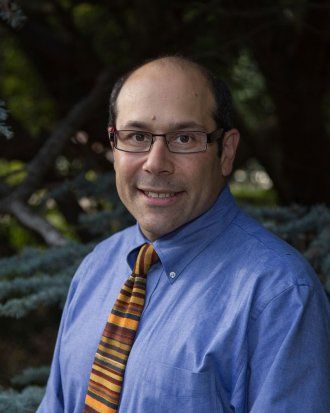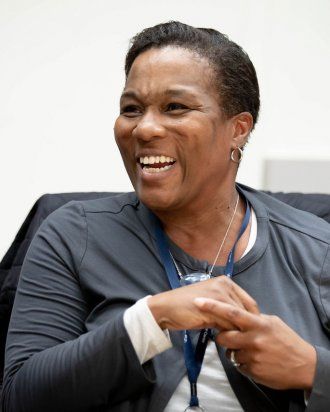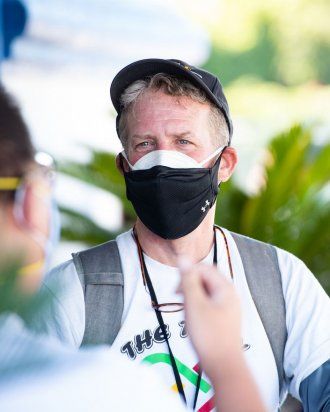Tracking and integrating findings across disciplines is a persistent challenge in health disparities research. UC San Francisco faculty will soon take this challenge on with a new center to coordinate research from 11 newly funded centers across the U.S. on the root causes of, and ways to eliminate, disparities in multiple chronic diseases.
The UCSF center will be funded by a five-year $22.5 million grant from the National Institute on Minority Health and Health Disparities (NIMHD) and co-directed by principal investigators Edwin Charlebois, MPH, PhD, Stuart Gansky, DrPH, and Kim Rhoads, MD, MPH. This is part of an NIMHD initiative to fund a consortium of the UCSF coordinating center along with 11 centers based in other institutions.
Research at the centers will range from the role of social determinants of health – such as poverty, structural racism, and substandard housing – in creating and exacerbating disparities, to interventions using faith-based initiatives and neighborhood institutions. The 11 centers received NIMHD grants totaling almost $205 million to address prevention, access to care, quality of care, and self-management of chronic disease.

“The same social determinants of health – access to nutritious food, safe housing and quality education - influence disparities in multiple chronic diseases, including hypertension, diabetes, cancer, oral health, and HIV,” said Gansky. “And those diseases also often interact with one another. The idea is to connect all of those dots.”
Gansky is the Lee Hysan Chair of Oral Epidemiology and Associate Dean for Research in the UCSF School of Dentistry, and director of the UCSF Center to Address Disparities in Children’s Oral Health. He’ll lead the new center’s Research Coordination and Data Management Unit with William Brown III, PhD, DrPH, assistant professor of medicine, as associate unit director. Brown is the director of Diversity, Equity, and Inclusion for the Bakar Computational Health Sciences Institute.
Engaging Communities
One of the most important functions of the new center will be to encourage researchers to work with groups and individuals in their own communities early on and throughout the research process. To that end, Rhoads, associate director for Community Engagement at UCSF’s Helen Diller Family Comprehensive Cancer Center, will lead the center’s community engagement unit. Greg Rebchook, PhD, associate professor of Medicine, will be the associate director of the unit.

“My role will be to leverage the vast experience and deep community engagement here at UCSF to support other centers as they enhance and cultivate similar relationships with their current and future community partners,” said Rhoads, an associate professor in the Department of Epidemiology and Biostatistics. “We will also have the opportunity to learn from other centers and improve on our own work. It’s a tremendous honor, privilege, and responsibility to lead a national effort that will move us a significant step closer to achieving health equity.”
The UCSF center will also maintain an external website to keep affected communities and other interested parties abreast of new research and initiatives across the new disparities research consortium, said Charlebois, a professor of Medicine in UCSF’s Division of Prevention Sciences and director of the post-doctoral training program at the Center for AIDS Prevention Studies (CAPS).
“What we do particularly well here at UCSF is both work with the community and work with each other across disciplines,” said Charlebois, who will lead the center’s Research Organization and Consortium Management Unit. “It is critical that we bring in a range of key and often unheard voices and perspectives early on, while we are identifying priorities and figuring out intervention and research designs.”
Mandana Khalili, MD, professor in the School of Medicine, will direct the Research Skills Development Unit, which aims to support junior researchers, as well as train mid-career researchers in how to be mentors. Dr. Charlebois will be associate director of this unit.
While the three co-directors — Charlebois, Gansky, and Rhoads — have specific areas of responsibility with the center, they are all versed in collaboration, community engagement, cross-disciplinary research, health equity research, and mentorship, and will put the range of their experience to good use.
“Our roles are complementary and synergistic,” Charlebois said. “We want the center itself to be a model of transdisciplinary engagement, including how it functions.”
Breaking Down Siloes
UCSF’s center will provide research consortium organization and support with technical assistance, including in study design, to the 11 disparities research centers based in rural, suburban and urban areas from New Jersey to Arkansas to Minnesota to California. UCSF also will collect common data elements among the 11 centers’ projects, to conduct larger-scale analyses and cross-center studies.
A major center function will be to facilitate networking, so all research sites can share data and findings with one another. To further that end, the center will create a networked community advisory board comprising representatives from each of the 11 centers’ individual community advisory boards, to encourage a two-way flow of information and priorities.
“Our efforts will ensure that what the centers discover through their interventions will benefit a broad group of stakeholders committed to the elimination of longstanding chronic disease disparities, not just those who are impacted locally,” Rhoads said.

“We are honored to be chosen by NIMHD to be the Research Coordinating Center for its Multiple Chronic Disease Disparities Research Initiative,” Charlebois said. “Our broad UCSF team brings experience in facilitating transdisciplinary and community-engaged research along with expertise in chronic diseases, health disparities, research coordination, big data management, and educational development for early-career investigators.”
An ideal outcome of the center’s work would be policy changes that make it easier for people to live healthier lives — whether that’s having access to fresh fruit or outdoor exercise in a safe area, or eliminating some of the comorbidities of poverty such as exposure to harmful chemicals, Gansky said: “We are trying to figure out the best ways to give people a chance for an even start, to have an even playing field. Health at the same level for all.”